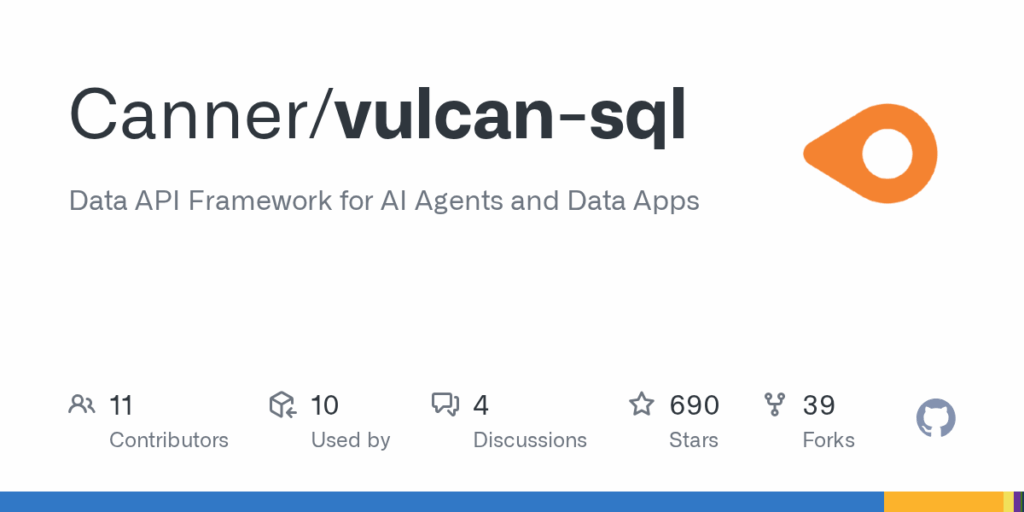vulcan sql
Basic Information
VulcanSQL is an analytical Data API framework intended to help data professionals and developers expose databases, data warehouses, and data lakes as RESTful APIs for AI agents and data applications. The project converts SQL templates into API endpoints, accepting input parameters and generating SQL on the fly. It emphasizes standardized API interaction via OpenAPI documents so AI agents and external tools can discover and call data endpoints consistently. The repository provides a development workflow similar to dbt with templated SQL and variable insertion, a caching layer using DuckDB to accelerate queries, and tooling to package and deploy APIs via Docker or command-line workflows. The README also points to an online playground and example repositories to demonstrate usage and integration patterns.








